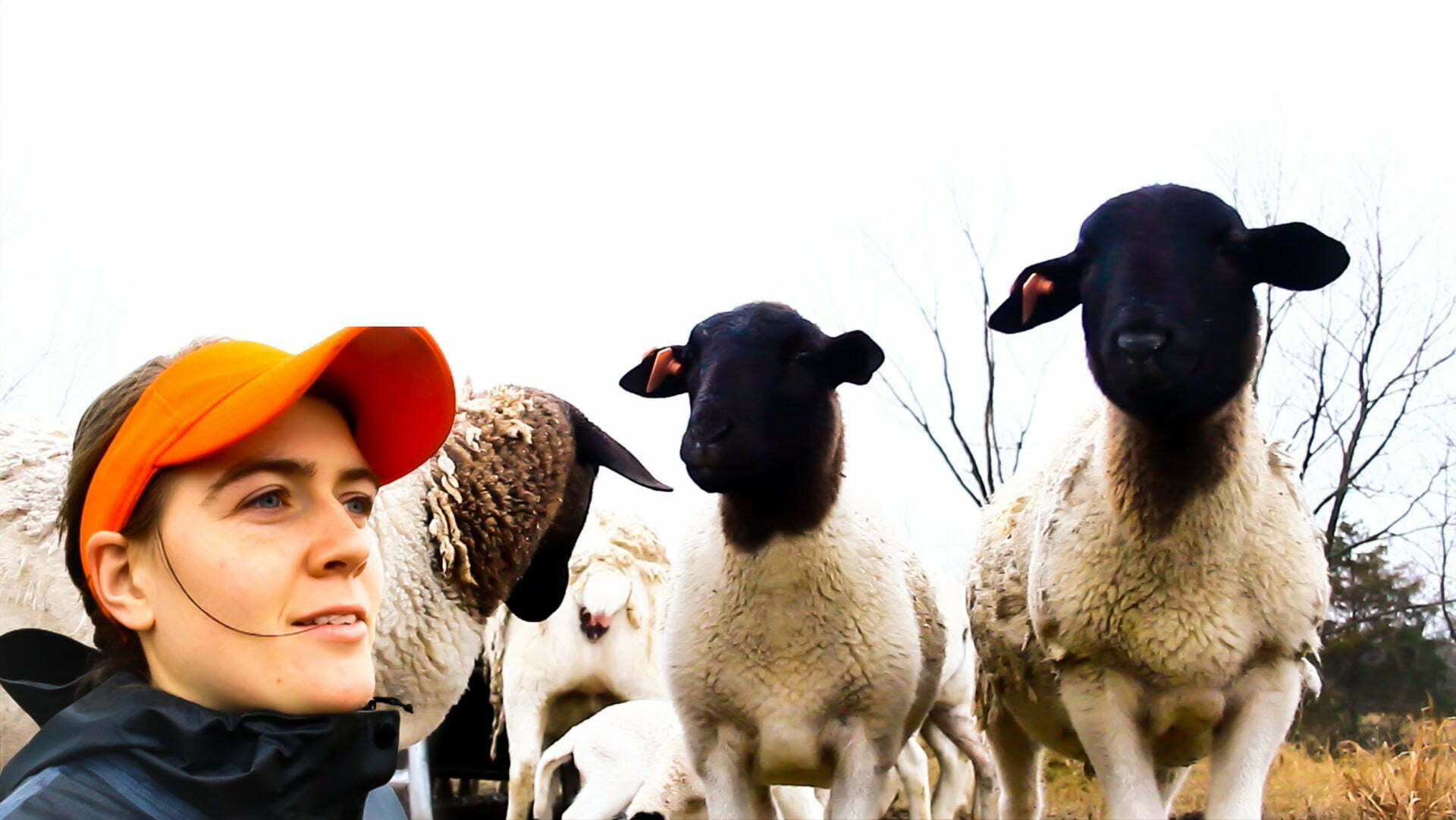It has been 4 months since we launched our management-intensive rotational grazing program for our flock of 25 Dorper Sheep. We started intensive rotational grazing our sheep (meaning we move them to a new paddock every 2 days) as a means of parasite management. Intensive rotational grazing also allows our pasture grasses to recover at break-neck speed. Because our Dorper sheep farm is located in East Texas, we are able to rotational graze our sheep on a year-round basis. Our fencing is a combination of 6″ hog panel perimeter fence and electric poly-tape. Even though our intensive rotational grazing system has only been in place for 4 months, we have seen some amazing results!!
We launched our intensive rotational grazing program for our flock of 25 Dorper sheep on August 15th. We launched this system as a final effort towards parasite management. Sheep are highly susceptible to worms, the Barber Pole worm being the worst threat of all. Typically you can control worms with chemical dewormers. Unfortunately, our flock of Dorper sheep had developed a resistance to these conventional dewormers (ivermectin, cydectin, etc). Because these dewormers were no longer 100% effective for our flock, the health of our sheep was failing. In efforts to improve the health of our Dorper sheep, we implemented Intensive rotational grazing in addition to these conventional dewormers.
Our intensive rotational grazing program for our Dorper sheep involves moving them to fresh pasture every 48 hours. To carry out this rotational grazing strategy, we use electric fence; electric poly tape to be specific. We use the electric fencing to create small paddocks that provide the sheep with just enough grass to graze for 48 hours. For 25 sheep, each 48 hour paddock is around 1/10 acre.
Why does rotational grazing help with parasites in sheep? To explain how rotational grazing helps reduce parasites in sheep, I will explain the life cycle of the parasite. Worms (parasites) exit the body of the sheep via their manure and lands on the pasture. Within 3-10 days (depending on climate), the worms hatch out of the manure and climb up the grass stem. If the sheep is left to graze on a pasture more than 3 days, they will graze grass that is covered in the microscopic larvae of the Barber Pole worm. Through intensive rotational grazing we move the sheep to fresh pasture before they can graze the grass that is covered in parasites. We fence off the previous pasture with electric fencing so the sheep cannot back-track and re-graze the previous paddock.
In addition to being amazing for the health of our sheep, Intensive rotational grazing is also amazing for the health of our pastures! By only grazing a paddock for 2 days, then moving the animals off the grass is given a lot of time to rest and recover. This short grazing period and long rest period allows the grasses to recharge their root systems. This creates deep roots and allows the grasses to fully recover before grazing. Pasture fertilization through even manure distribution is another benefit of intensive rotational grazing. Healthy sheep and healthy pastures makes intensive rotational grazing a win-win!
Our Dorper sheep farm is located in East Texas. Because we are farming sheep in Texas, we can leave our sheep on pasture all year round. In East Texas we do not typically experience harsh winter conditions like snow or ice, so we can allow our sheep to graze through the winter. Sheep farming in Texas is really an ideal situation for intensive rotational grazing program.
Electric fencing is an essential element in our intensive rotational grazing program. We have a strong perimeter fence that is made up of 6″ hog panel around the entire 30 acres of our farm. We use electric poly-tape within our 6″ hog panel perimeter fence to create the small 2-day paddocks. When we rotational graze our sheep, we use plastic step in posts and electric poly-tape to create temporary paddocks. Once we are done grazing an paddock, we roll it up move to the next one!
So what are the results after intensive rotational grazing our Dorper sheep for 4 months? AMAZING!!! For one, our Dorper sheep stopped dying of worms. Before implementing the rotational grazing program in August, we had already lost 3 sheep to parasite this summer. The body condition of our flock has also improved. Our sheep have gone bony and hallow, to plump and muscular. One of the neatest things is that since we began rotational grazing we have been able to reduce our use of conventional dewormers from twice a month to once a month. Some of our ewes are actually able to go 60 days without any chemical dewormers.
At this time we are still using chemical dewormers on our farm. It’s important to do this because our animal’s lives depend on it. It is, however, our ultimate goal to breed out a line of of parasite resistant Dorper Sheep that have no need for chemical dewormers. Lord-willing this will be a reality within 7 years!
I hope this information about rotational grazing sheep helps you! Intensive rotational grazing is tremendously beneficial for parasite management. Intensive rotational grazing your sheep will also improve pasture quality. Because we intensive rotational graze our sheep in Texas, we can leave them on pasture yer round. With a relatively small investment in electric fencing you can launch an intensive rotational grazing program of your own!
-The Millennial Shepherdess at Harmony Farms
“Know that the LORD, He is God; It is He who has made us, and not we ourselves; We are His people and the sheep of His pasture.” Psalm 100:3

Leave a Reply